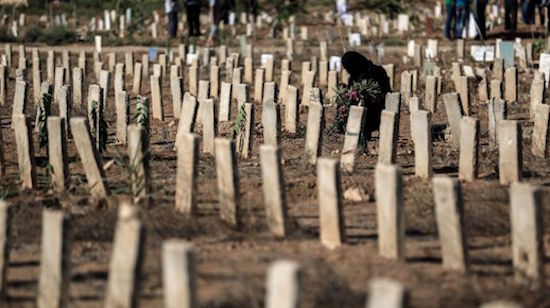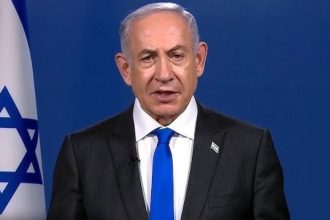By: Meer Khan
The world is in a state of war. It is torn apart in terms of strategic and geopolitical relations and of course warfare. And, this foul weather ought not to be identified with a new Cold War because the Cold War abided by certain safeguards with regards to nuclear weapons. At its worst, what is happening today is a complete breakdown of communication between East and West.
The crux of the problem is that we have reached a historic crossroads. As super powers are treating the world to a display of naked aggression, potential nuclear-confrontation is looming large. From confrontation between Armenia and Azerbaijan, the confrontation between the United States and China in the South China Sea, to situation in the Middle East, the world is beset with thorny problems.
Leaders, policy-makers, and politicians are blinking away eyes from enormous issues that are calling their attention.
Today’s situation in the Middle East is posing a massive threat to world peace. So-called ‘an honest mistake’ to intervene in Iraq is now thought to be the principle cause of the rise of ISIS in the region. In 2011, a U.S poll found that 90% people of Iraq thought they had been worst off because of the bogus or misinformed invasion.
In five years, more than 450,000 Syrians have lost their precious lives, and unabated violence continues. The prolonged Syrian crisis has unleased soul less mercenaries where regional and international powers are fighting a battle of wills. The longer the Syrian crisis continues, the quicker peace will be disappearing from the across the world.
With neither government nor opposition able to inflict a decisive defeat, the only solution to the Syrian conflict is political. At the meantime, confrontation with IS has provided the necessary impetus to look for a political solution.
The UN Security Council has already called for the implementation of the 2012 Geneva Communique which encourages parties involved to form a transitional government on the basis of mutual consent.
There is clear roadmap to end the conflict in Syria. A UN resolution governing talks says that a transitional governing body will have full executive powers to call a national conference which would, in turn, form a constitutional committee.
The time is ripe for peaceful power sharing as Syria’s opposition is willing to share membership of a transitional governing body with people in the current regime of Bashar al-Assad — but not with Mr. Assad himself. Now, the ball is in Russia’s court to put pressure on Bashar-al-Assad to resign. But, Mr. Salim Muslat, the spokesman for the opposition’s High Negotiations Committee, told Reuters in Geneva during peace talks,“There is room for negotiation on how to handle Mr. Assad’s departure.”
The need of the hour is that regional and international powers lay their guns down and adhere to the wishes of the Syrians people so as to find a lasting solution.






